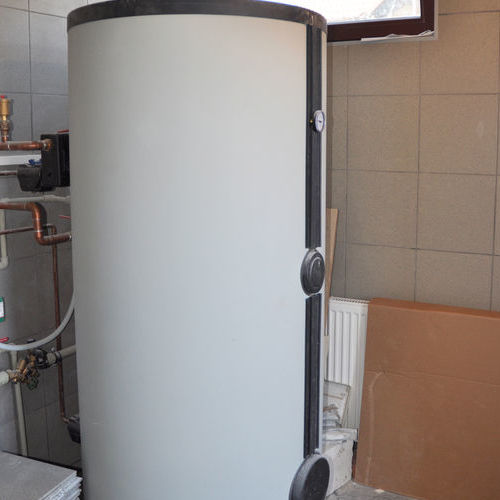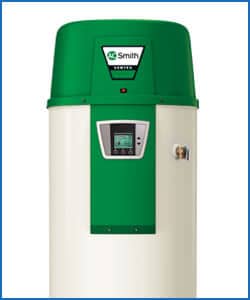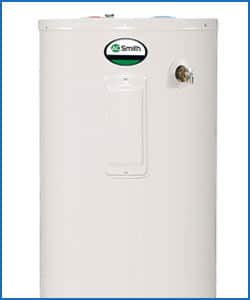
Water Heater Types
Campbell's Appliance, Heating & Air Inc. offers different water heater types such as gas, electric, and tankless water heaters in Waco-Temple-Killeen, TX. There are pros and cons to all different water heater types. It is about picking which one is right for you. There are no cookie-cutter systems that work for every family or every home because everyone’s needs are different. One of our trained technicians can sit down with you and help you find the right water heater type for you depending on your budget, household size, family needs, and more.
If you are ready to get a new water heater, we are the right choice for the company to do it. We have information about the different types of water heaters below; so take some time and learn the benefits of each model. Feel free to contact us with any questions or concerns you may have. Please complete the form below or contact us today at (254) 501-7318.
If you are experiencing these, or any other signs of a broken water heater, don’t wait to call for help. We are standing by now waiting for your call. If you are looking for water heater repair contact Campbell's Appliance, Heating & Air Inc. today. We look forward to speaking with you soon.
Gas Water Heater
In a natural gas or propane-powered water heater, cold water is fed into the tank through a dip tube at the bottom of the tank. The cold water stays at the bottom being heated by the burner under the tank, and as it is heated the hot water rises. As you use the hot water stored in the tank, more is fed into it to repeat the cycle.
Benefits – lower operating costs, higher efficiency, quicker recovery rates, more accurate temperature adjustment, reduced risk of power problems, wider selection of sizes, installation, and venting options


Electric Water Heater
In an electric water heater, electricity is used to heat the water inside the tank. There is a lower and an upper thermostat to detect the temperature of the water, which tells the unit to kick on when needed to heat the water to the temperature set by the homeowner, usually with a small dial outside the unit. As you use the water, the tank then fills with more cold water to be heated. This time is called the recovery.
Benefits – You run a much greater risk of your gas tank exploding, and causing a lot more damage to your home, than you do from electrocution from your electric water heater. These devices use fewer parts and subject those parts to less direct heat, they can last years beyond the lifespan of a gas water heater. These units cost less than gas heaters of the same size. Along the lines of safety, electric water heaters do not use a pilot light, so you don’t need to worry about relighting the flame if it accidentally burns out.
With a gas water heater, you must vent the exhaust through a flue. That means you must install PVC tubing up through your home and out your roof. With an electric model, you just install a special outlet or bare wiring. No need to saw holes in your roof. Gas water heaters need at least 6-18? of ventilation around all sides and tops, which means you can’t just install the tank in a small closet or crawl space. These units can be installed in confined spaces without fear of gas buildup or an explosion.
- Electric Water Heaters Give us a call about electric water heaters.
- Propane and Gas Water Heater We are the team to call for propane and gas water heaters.
- Tankless Water Heaters Get tankless water heater installation and repair.

